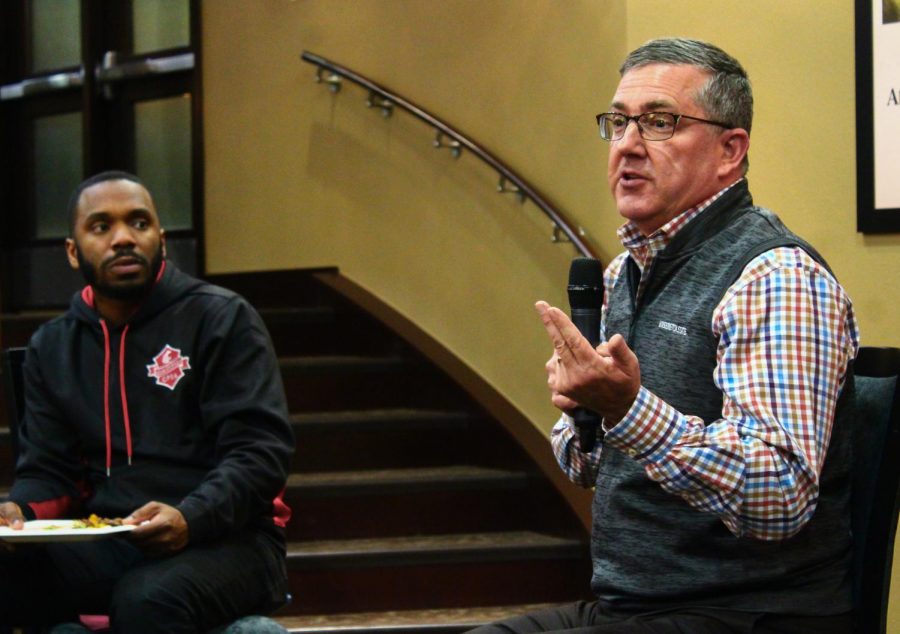President Schulz addresses graduate student questions, concerns
University president encourages trips to capitol, raises for TAs
OLIVIA WOLF | THE DAILY EVERGREEN
GPSA President Amir Gilmore, left, listens as WSU President Kirk Schulz answers questions at the GPSA Chat and Chew event Tuesday night.
November 14, 2018
GPSA hosted a Chat and Chew on Tuesday with WSU President Kirk Schulz that gave members the opportunity to ask questions regarding issues such as stipends and political participation.
GPSA President Amir Gilmore asked how graduate students can balance graduating on time and making enough money.
Schulz said the university has talked more to alumni about graduate student issues and part of making sure graduate students get enough money is raising stipends.
“We need to make sure there’s consistency [in stipend distribution],” he said.
Stipends need to be competitive and a way to start that is to raise teaching assistant stipends, Schulz said.
Another important part is to help graduate students have a transformational learning experience while at WSU, he said.
“It helps us to be successful, and that’s what we want to do and that starts while you’re here,” Schulz said.
Schulz said when he first became president, graduate students were not as visible on campus as they are now. One of the things the university worked on was raising visibility for graduate students. He said when they do leadership searches now they make sure to look for graduate students too.
Josh Munroe, vice president of legislative affairs, asked Schulz how to get graduate students to express their political viewpoints.
Schulz said he encourages people to go on trips like Coug Day at the Capitol to meet with their elected officials.
He said before he met any elected officials, he used to think they were corrupt or incompetent, but after meeting with them he thinks they are just like anyone else. Meeting with them is not as intimidating as it might seem, he said.
“You get to see the internal workings of the political environment,” Schulz said.
It is important to speak up about what you think is important, he said.
“Campuses are full of controversy,” Schulz said. “We welcome it. Students feel comfortable expressing themselves in different ways.”
He said some people participate in counter-protests, but others do not like to do that and might just avoid talking about politics, which is fine too.
Another question Schulz was asked about was how to make graduate students more interested in coming to WSU. He said some deans want to fundraise to get better stipends for graduate students.
“If we get the stipend issue fixed, people are going to come [to WSU],” he said.
He said he realized the stipends are not the only issue, but they are a large part of it.
Another element is the fact that Pullman is a small town which does not appeal to everyone, Schulz said.









